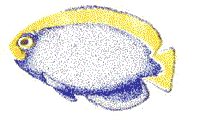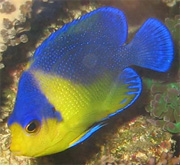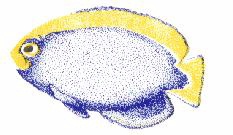|

May 2, 2001
(CA A 1334)
PIJAC ( Pet Industry Joint Advisory Council )
ALL CAULERPA SPECIES BAN
Assembly Bill 1334 would ban the entire genus of Caulerpa though
there is no evidence whatsoever that every Caulerpa species is in fact
“invasive” or threatens the environment. The legislation stems from
problems with Caulerpa taxifolia in the San Diego and Huntington Beach
areas.
Proponents argue that all of the species should be banned because they
look alike, cannot be easily distinguished and possess similar DNA structure.
AB 1334 would make it illegal for any person to “sell, possess, import,
transport, release alive in the state, transfer, or give away without consideration
the salt water algae of the genus Caulerpa.” Violations of the law could
result in the assessment of civil penalties of at least $500 and as much
as $10,000 for each offense.
Since it is virtually impossible to distinguish between Caulerpa taxifolia
Mediterranean strain and Caulerpa taxifolia indigenous to North America,
PIJAC supported the imposition of a ban with respect to the species C.
taxifolia. PIJAC strongly opposed, however, setting bad precedent
by banning an entire genus because one species within the genus is an invasive
species. Timothy Hovanec, Ph.D. (Marineland/Aquaria and PIJAC President)
testified at the April 3 Hearing in Sacramento pointing out that there
is no legitimate basis for banning an entire genus, absent sound science
demonstrating all species are affected. Examples abound of a nuisance plant
in a genus where the rest of the genus is fine. The mere fact that
DNA similarities exist is not a predictor that invasiveness will follow.
Points raised by Dr. Hovanec
· Restrictions on C. taxifolia, including C. taxifolia Mediterranean
because of the look-alike issue, are reasonable. The industry supports
such a ban
· Restrictions on a whole genus are not warranted merely because
a single species may be invasive.
· Similarities in DNA among species of a given genus do not necessarily
indicate that all share invasive potential. A ban should not be imposed
without sound scientific basis.
· The so-called “look-alike” rationale, while sometimes applicable
to similar species, is not a valid basis for capriciously banning an entire
genus. If persons in the trade can distinguish species within the genus
Caulerpa, then inspectors can certainly be provided the proper training
(and given appropriate identification guides and keys) to do the same.
Careless legislating is not justified simply because a broad ban is more
convenient for inspectors.
· The committee may wish to consider establishing a study group,
to include industry representatives, legislators, and experts in aquatic
science, for a closer review of the issue and recommendations for amendment
of the bill.
· Good legislating demands that the law address the specific
area of concern, rather than simply adopting a sweeping and overbroad ban
on otherwise legitimate activities.
Subsequent to the Hearing, Dr. Hovanec returned to Sacramento for a
meeting with the bill’s sponsor and a researcher from UC Davis to discuss
the issue and strive for an amendment to allow various species of Caulerpa
that have not been shown to be invasive.
WHAT YOU NEED TO DO
Contact Assemblyman Harman’s office and let him know of your concern
and opposition. Send letters and call. Call his District Office
and ask to speak with Dave Weaver, his staff aid handling the bill.
The District Office telephone number is (714) 843-4966.
If possible, arrange for one or more of the marine aquarium societies
in the area to invite Assemblyman Harman to a meeting to discuss the issue.
Get as many people to attend as possible.
Also, generate as much mail as you can. Have your friends, family,
neighbors, etc. send letters.
If you have any data on the species in trade and the hobby, please send
it to PIJAC as quickly as possible so we can attempt to estimate the volume,
by species, in trade. PIJAC can be contacted at (202) 452-1525; FAX
(202) 293-4377 or mmeyers@pijac.org
Assemblyman Tom Harman
Capitol Office:
State Capitol Room 5158
Sacramento, CA 95814
(916) 319-2067
(916) 319-2167 FAX
District Office:
17011 Beach Blvd. Suite 570
Huntington Beach, CA 92647
(714) 843-4966
(714) 843-6375 FAX
Email: assemblymember.harman@assembly.ca.gov
Who is your local Assemblyman or Senator ?
http://www.leginfo.ca.gov/yourleg.html
|












